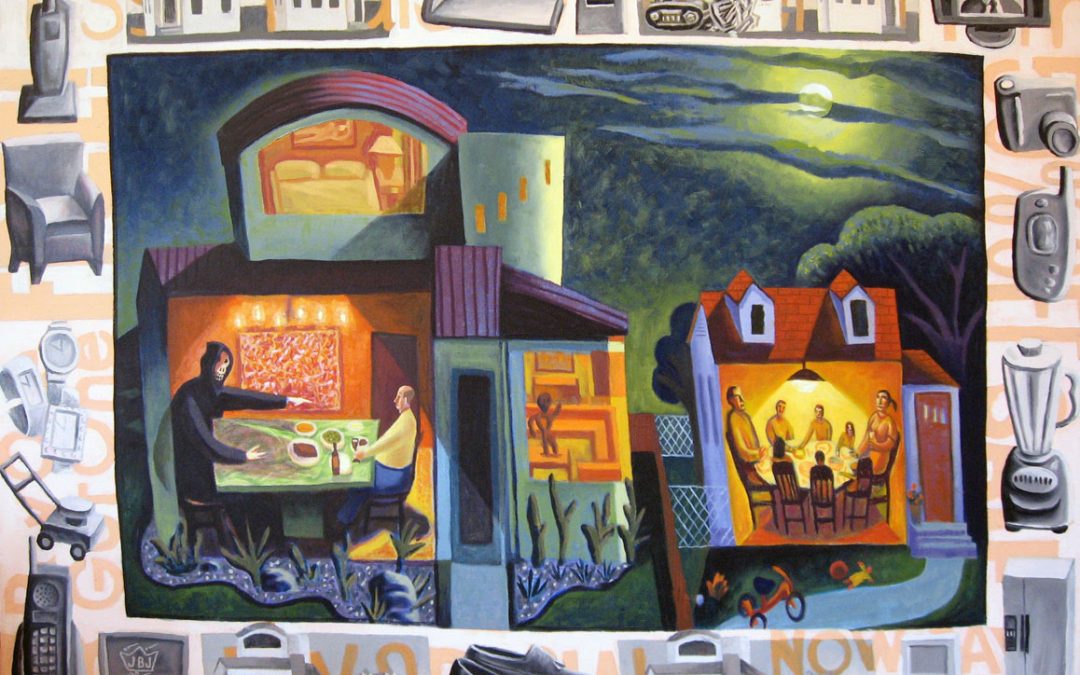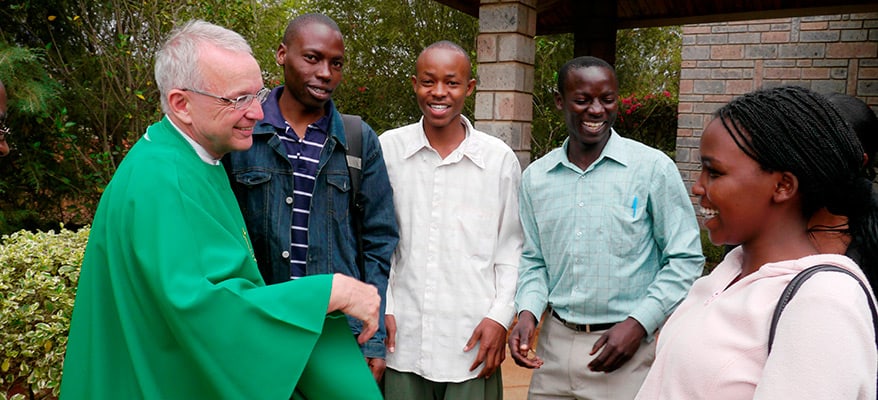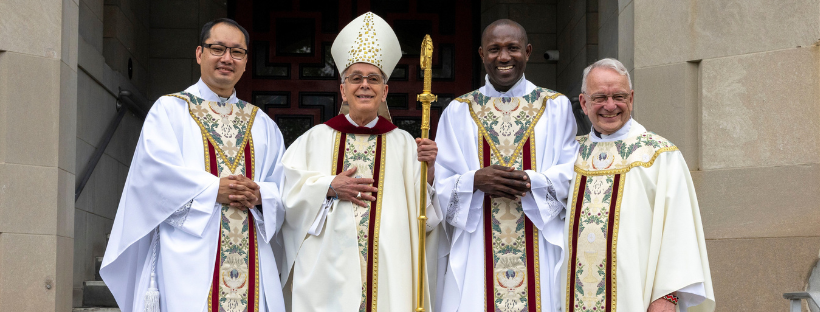All of us are quite familiar with today’s Gospel from Saint Luke (16:19-31) which narrates the parable of the poor man Lazarus lying at gate of the rich man Dives. We also hear it proclaimed every year on Thursday of the second week of Lent. The parable actually illustrates that our attitude to our needy neighbor is actually our attitude to God himself. As John says: “One who does not love the brother that he can see, cannot love God whom he has never seen” (1 Jn 4:20).
Blind Indifference. Note that Dives did not act harshly toward Lazarus; he simply turned a blind eye to him and ignored his needs. In a word, he closed his heart to him. Again, we are confronted by the words of John: “If a man who was rich enough in this world’s goods saw one of his brothers in need, but closed his heart to him, how could the love of God be living in him?” (1 Jn 3:17).
Pope Francis Speaks. In his message for Lent 2016, the Pope offers us some profound reflections on authentic wealth and poverty. He writes: “… the real poor are revealed as those who refuse to see themselves as such. They consider themselves rich, but they are actually the poorest of the poor. This is because they are slaves to sin, which leads them to use wealth and power not for the service of God and others, but to stifle within their hearts the profound sense that they too are only poor beggars.”
“The greater their power and wealth, the more this blindness and deception can grow. It can even reach the point of being blind to Lazarus begging at their doorstep…. Lazarus, the poor man, is a figure of Christ, who through the poor pleads for our conversion. As such, he represents the possibility of conversion which God offers us and which we may well fail to see.”
Art Enriches Faith. Today’s Gospel parable is richly illustrated in the work of contemporary artist James Janknegt (Lenten Meditations). This Texas artist seeks to “paint the parables” in what he calls “modern day American vernacular.”
Janknegt’s painting of today’s parable depicts the rich man as “an all-you-can-eat glutton wolfing down large portions of takeout food. The sore-plagued beggar is the man of the streets with a bedroll and companion dogs.” Friends, you are invited to explore Janknegt’s striking contemporary parable paintings; they are readily available on the internet. They will certainly enrich your faith reflection on the relevance of Jesus’ parables for contemporary society!
Deepening Awareness. We all need to accept our own poverty and lack of social awareness; Pope Francis has often spoken about the “globalization of indifference” in contemporary society. After all, it is only by embracing our own poverty that we become more human, more “open-hearted” to others (especially the poor), and ultimately more at peace with ourselves.
James H. Kroeger, M.M.
Prayer for 26th Sunday in Ordinary Time
Poor in spirit we come before you, Lord,
with open and empty hands begging
to receive your grace and your word
as our daily bread.
You, who looked with mercy on
poor Lazarus at the door of the rich man,
may we be ever mindful of the blessings
we have received and open our hearts
to share with those who have less.
Grant that we might acknowledge our own
spiritual poverty that we, like Lazarus,
may at length rest in the bosom of Abraham.
Above all, open our eyes to recognize
our brothers and sisters in need
that with open hands we might share
your blessings with all and with
open lips proclaim your love to and for everyone.
In Jesus’ name we pray.
Amen.
By Fr. Joseph Veneroso. M.M.




